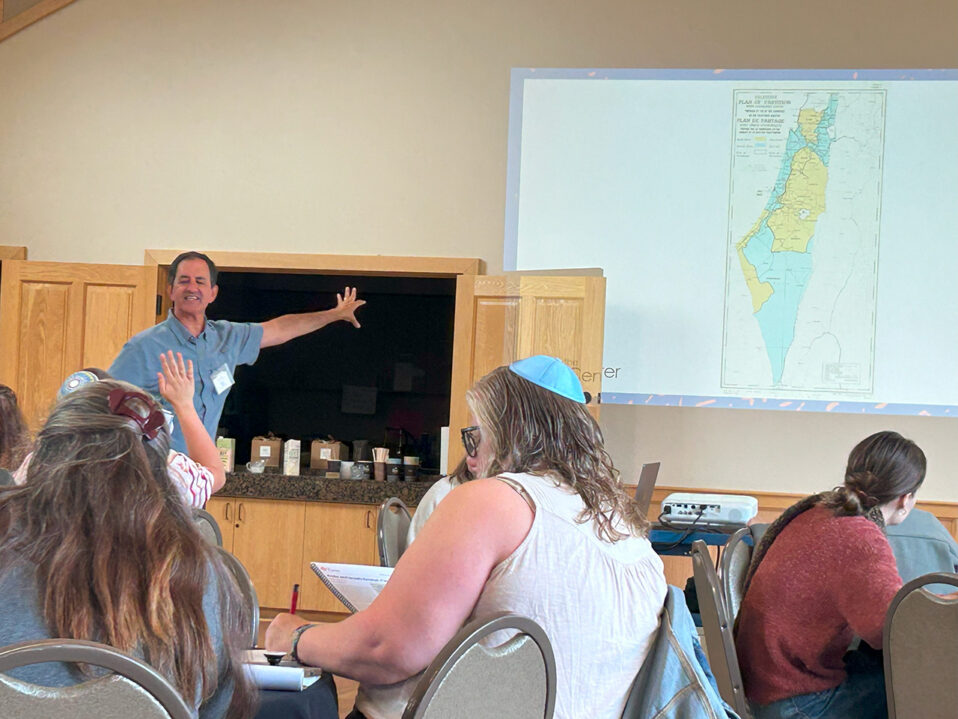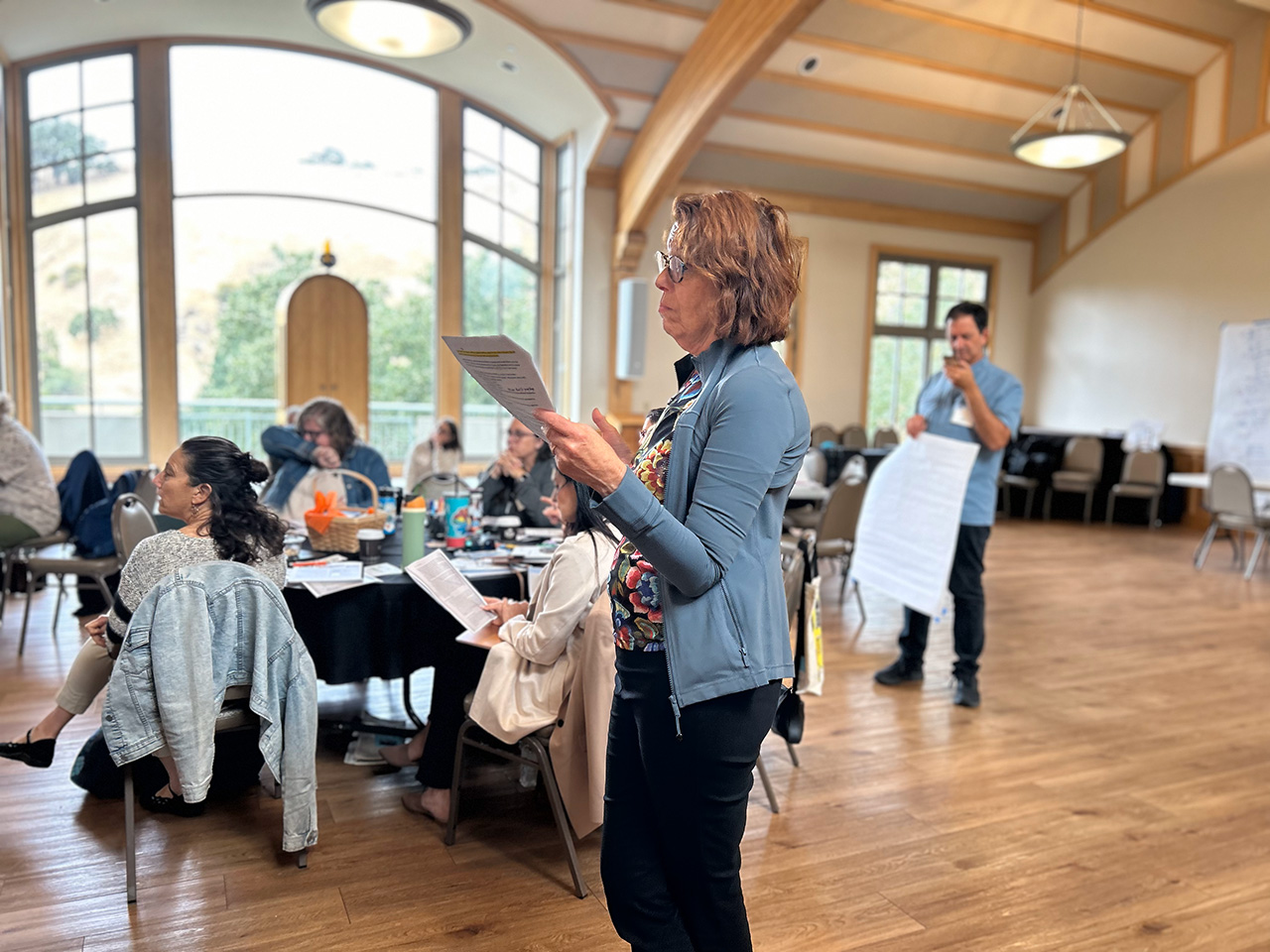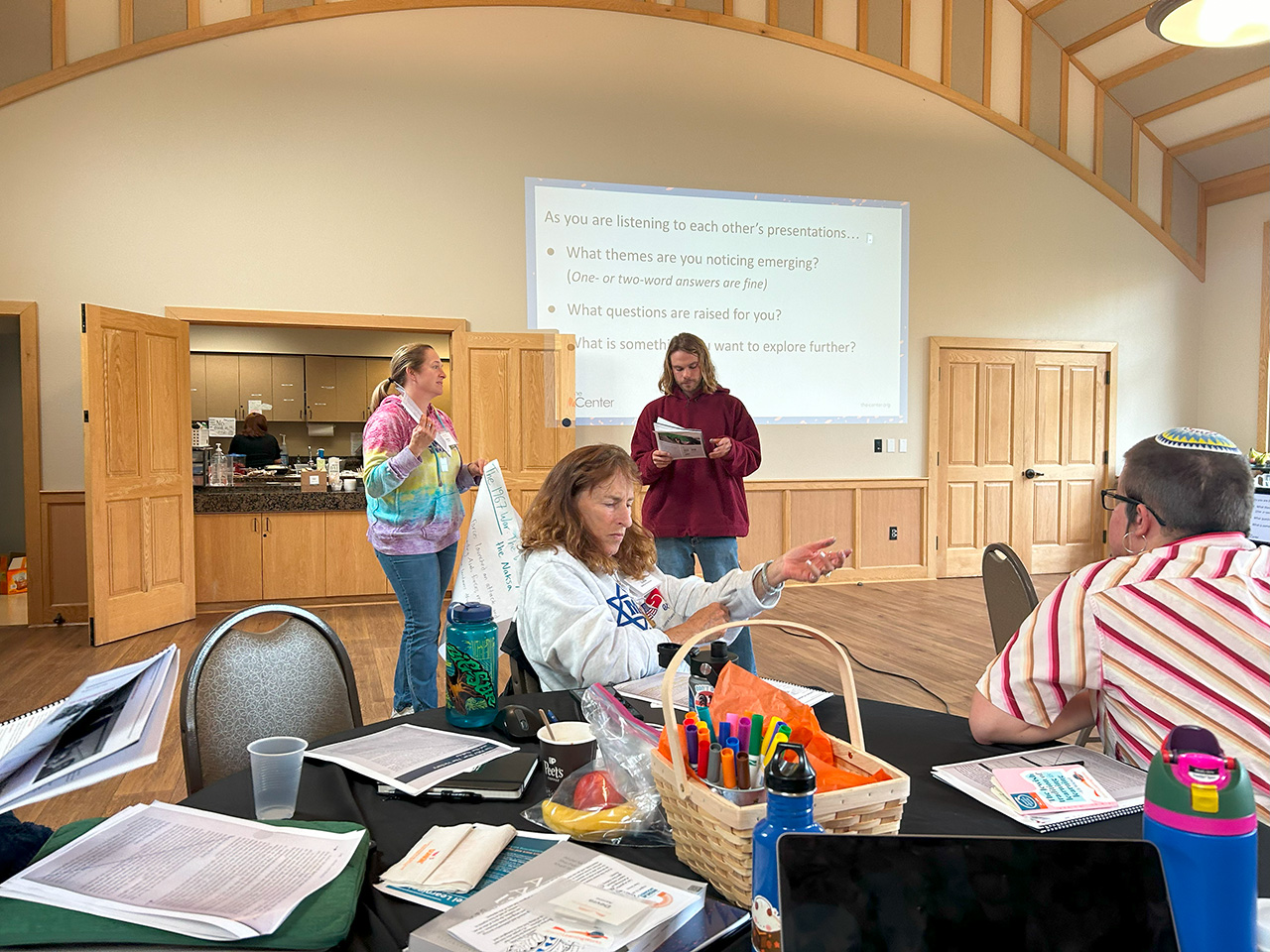By Dana Sheanin, Jewish LearningWorks’ CEO
“As long as the Jewish spirit is yearning deep in the heart,
With eyes turned toward the East, looking toward Zion,
Then our hope, the two thousand year old hope, will not be lost.
To be a free people in our land, the land of Zion and Jerusalem.”
Hatikvah, written in 1886
When the Jewish LearningWorks team began planning for the 2024–25 school year, we were only four months past the October 7 attacks. It was essential to provide opportunities for ongoing learning and connection for those engaged in Israel education, and it still felt too soon to predict what educators might need in the year ahead.
We chose to partner with the Chicago-based iCenter, because of their reputation for providing rich, pedagogically sound, values-based Israel education. This September, twenty Bay Area educators gathered to participate in the iCenter’s Conflicts of Interest curriculum. The seminar uses primary source documents to “reimagine how to effectively engage with one of the most contentious topics today: the Arab-Israeli/Israeli-Palestinian conflict. Engaging with conflicts is one of life’s defining challenges — particularly for those tasked with transforming moments of uncertainty into moments of opportunity.” Today of course, this is all of us.
As we gathered on a busy Sunday afternoon, participants were first asked to respond to questions including — What word describes how I am feeling right now? What word describes how I feel about Israel in my life? What questions am I fielding from others? We acknowledged that many educators are truly exhausted by the need to be resilient, and that while we are teachers, we are also adult learners. Over the course of the first afternoon, we created a timeline of key events in Israel history, after first asking — when does the history of Israel actually begin? We explored events from the Bar Kokhba revolt in 132 CE, to the present from multiple perspectives — Israeli, Palestinian, Pan-Arab and British. And we wrestled with seven points of ongoing contention across this history — Israel’s right to exist, borders, settlements, refugees, Jerusalem, security and water.
On our second day together, we began by reaffirming the need for each of us to be open to experiences and perspectives different from our own, and the importance of creating space for learners to ask difficult questions. In the afternoon, we used our senses to consider the aftermath of the October 7 attacks, viewing a gallery of images, and listening to accompanying audio about them. We were reminded that to teach is to curate, and that we are always choosing the stories, the images, the points of view we wish to share with our students. Education is not value neutral.
I know that many of us left with more questions than answers, but also with the renewed energy that comes from being with colleagues who are also wrestling with Israel. In November, we will be launching a second, more intensive learning opportunity — our new Israel Learning Lab — focusing on nonviolent communication, how children understand Israel from preschool through high school, and mentorship from veteran Israel educators. These are hard days for Jews in Israel and around the world. May peace come to all who are suffering, soon.






